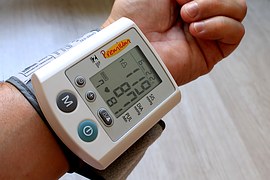
Undoubtedly, you want someone who not only provides quality care but also understands and connects with your family members on a personal level. That’s where home care agencies come in – they can match you with professional caregivers who have the required skills and experience to meet your loved one’s needs. Home health care brooklyn ny, provides the best caregiver that can do just that. But before you hire a caregiver from a home care agency, there are some important questions you need to ask to ensure that they meet your standards of care.
What Are Your Quality of Care Standards?
Care quality provided by the home care agency is everything. That’s why you need to understand their standards and expectations. Ask the agency how they ensure that their caregivers deliver high-quality care consistently. This should include caregiver training. Find out if the agency provides ongoing training and professional development opportunities for their caregivers.
Additionally, ask about any certifications or licenses required for their caregivers. A reputable agency should only hire caregivers who meet specific qualifications and have necessary credentials in CPR, first aid, or specialized dementia care. Another indicator of quality is personalized care plans.
What Type of Employee Screenings Have You Passed?
 Asking this ensures that you are entrusting your loved one’s care to someone qualified, trustworthy, and reliable. So, ask the agency about their background checks. In addition to criminal record checks, inquire about reference checks.
Asking this ensures that you are entrusting your loved one’s care to someone qualified, trustworthy, and reliable. So, ask the agency about their background checks. In addition to criminal record checks, inquire about reference checks.
Speaking with previous employers or clients can provide valuable insight into a caregiver’s work ethic, professionalism, and interpersonal skills. Another crucial screening measure is drug testing. Caregivers should be regularly tested for drugs or substances that impair their ability to provide proper care.
Furthermore, it is important to inquire if caregivers undergo special training or certifications specific to elderly care. These qualifications can range from CPR certification to specialized dementia training.
What Services Do You Provide?
When considering hiring a caregiver from a home care agency, knowing what services they provide is essential. Each agency may offer different levels of care and assistance, so it’s important to ask the right questions to ensure your loved one receives the support they need. Inquire about the specific types of care provided by the agency.
Understanding their range of services will help determine if they can meet your loved one’s unique needs. Additionally, ask about any additional amenities or programs offered by the agency. Some agencies may have social engagement activities or transportation services available for their clients. These extra offerings can greatly enhance your loved one’s quality of life and overall well-being.
What If We Aren’t Satisfied With Your Job?
It’s completely okay to ask this question; as a matter of fact, it’s a must so that you won’t feel you get scammed. You want to be able to voice every bit of your concerns and have them properly addressed in a timely manner. One thing you can do is inquire about the agency’s policies for handling client complaints or dissatisfaction.
It’s also worth asking how quickly the agency responds to client feedback. Do they have a system in place for addressing complaints promptly? Additionally, consider asking about any guarantees or warranties the agency offers. Understanding what options are available to you can help alleviate concerns and give you peace of mind.…


 The past few decades have been characterized by diversity, rapidity, and unpredictability of numerous changes within the area of health, particularly the acute care. Across the world, there have been significant changes which seem promising and strongly convergent despite the differences in health systems and structures. In the capital planning context, two very distinct trends have emerged namely:
The past few decades have been characterized by diversity, rapidity, and unpredictability of numerous changes within the area of health, particularly the acute care. Across the world, there have been significant changes which seem promising and strongly convergent despite the differences in health systems and structures. In the capital planning context, two very distinct trends have emerged namely: All the health care facilities, goods, and services must respect the medical code of conduct and ethics. They should be sensitive to gender, culturally appropriate and should be sensitive to life-cycle requirements. Also, they should be designed to respect privacy rights as well as improve the health status of all the persons concerned.
All the health care facilities, goods, and services must respect the medical code of conduct and ethics. They should be sensitive to gender, culturally appropriate and should be sensitive to life-cycle requirements. Also, they should be designed to respect privacy rights as well as improve the health status of all the persons concerned.